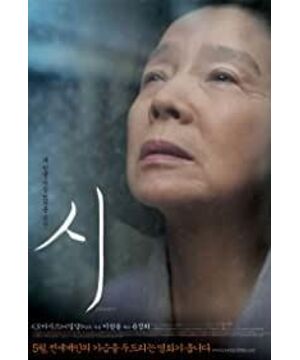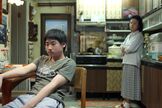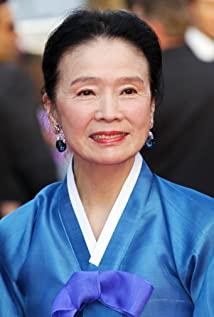One of the main lines is that Yang Mizi, an old woman in a small Korean town, wanted to write the first poem in her life, why did she write poetry, how did she get inspiration, did she finish the task before Alzheimer's took hold, and finally wrote What is the quality of the poems? This film tells about the distance between Yang Meizi and poetry. In fact, it is also the distance between me and other mortals and poetry.
The second main line is that Yang Mei's grandson was involved in a case of a group sex crime among middle school students, which led to the suicide of the victim girl. Why is the honest-looking grandson getting involved in sex crimes? How is the girl's family background? How can school teachers and other parents of delinquent students deal with this problem? How does Yang Meizi, who brought up her grandson alone, face the failure of her education, and what kind of responsibility is she going to take? Poetry is not a weapon. It can promote good but cannot punish evil. What role did it play in resolving such a tragic incident, and how did it determine the direction of things?
The third main line is Yang Mezi's life alone, which can be described as a serious split. On one side is Yang Meizi's love for beautiful things, and on the other side is the strong sense of loneliness surrounding her. She always dresses up beautifully, pays attention to subtle changes in people and things around her, and is careful and enthusiastic about life, but these seem to only deepen her loneliness. The daughter was forced to leave the town early because of her livelihood. The generation gap between her grandson and the elderly could not be bridged. The old neighbor was indifferent to her thoughts and thoughts. Behind the respect of the classmates' parents are selfish desires, cruelty, and indifference. The memories of the classmates in the choir are full of extremely personal voices of pain. The only victim's mother who may have a common language with her is the least likely to have a relationship with her. people with a common language. How will poetry tell the beautiful world in Yang Meizi's eyes, and how will poetry cure the humiliation that lonely people must face?
How does an ordinary old woman with little power, money or even health write a poem, how does the process of writing a poem prompt her to make the most important decision in her life, and how does poetry cure her indescribable loneliness? Why is poetry a great weapon for mankind to defend against the dark world? A movie can tell why, it is very valuable.
Yang Meizi is a poem in itself, and her image embodies the beauty and militancy of poetry. The beauty of the old man's appearance and language is really pleasing, and her combativeness is exactly the same as that of poetry - unyielding, with a soft attitude to resist the seemingly incomparably powerful and logically dark world, until the last moment.
Compared with other literary carriers, imagination and lyricism are the nature of poetry. But this film expresses more connotations of poetry, the elimination of loneliness, the recognition and identification between people, the face of self and redemption of human beings, all of which can be accomplished through poetry. For imaginative poetry, the gap between time and space is no obstacle. The sky has nothing, why give me comfort? Because when I woke up again, in the dazzling sunlight, I found you by my side.
After watching this movie, as someone who is not familiar with poetry, I suddenly had a strong urge to find a good poem to read.
-----------------------
Haizi wrote:
"The night rises from the earth and
covers the bright sky
. After the harvest, the desolate earth and the
night rises from within you.
You have come from afar, and I have traveled far and far to go
through a long journey through here. The sky
has nothing
to comfort me
.
Ending
"But how excited my heart is to hear your hymn
I bless you with the last breath of my soul
before crossing the black river I began to dream One sunny morning... I woke up again, the sun was blinding... seeing you... stand by my side"
View more about Poetry reviews











